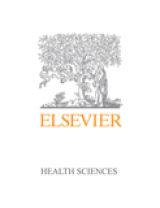
Luc-Harkey BA, Franz JR, Blackburn JT, Padua DA, Hackney AC, Pietrosimone B. Real-time Biofeedback Can Increase and Decrease Vertical Ground Reaction Force, Knee Flexion Excursion, and Knee Extension Moment during Walking in Individuals with Anterior Cruciate Ligament Reconstruction. Journal of Biomechanics (In press).
Abstract: Individuals with anterior cruciate ligament reconstruction (ACLR) often exhibit a “stiffened knee strategy” or an excessively extended knee during gait, characterized by lesser knee flexion excursion and peak internal knee extension moment (KEM). The purpose of this study was to determine the effect of real-time biofeedback (RTBF) cuing an acute change in peak vertical ground reaction force (vGRF) during the first 50% of the stance phase of walking gait on: 1) root mean square error (RMSE) between actual vGRF and RTBF target vGRF; 2) perceived difficulty; and 3) knee biomechanics. Acquisition and short-term recall of these outcomes were evaluated. Thirty individuals with unilateral ACLR completed 4 separate walking sessions on a force-measuring treadmill that consisted of a control (no RTBF) and 3 experimental loading conditions using RTBF including: 1) 5% vGRF increase (high-loading), 2) 5% vGRF decrease (low-loading) and 3) symmetric vGRF between limbs. Bilateral biomechanical outcomes were analyzed during the first 50% of the stance phase, and included KEM, knee flexion excursion, peak vGRF, and instantaneous vGRF loading rate (vGRF-LR) for each loading condition. Peak vGRF significantly increased and decreased during high-loading and low-loading, respectively compared to control loading. Instantaneous vGRF-LR, peak KEM and knee flexion excursion significantly increased during the high-loading condition compared to low-loading. Perceived difficultly and RMSE were lower during the symmetrical loading condition compared to the low-loading condition. Cuing an increase in peak vGRF may be beneficial for increasing KEM, knee flexion excursion, peak vGRF, and vGRF-LR in individuals with ACLR. Clinical Trials Number:NCT03035994
